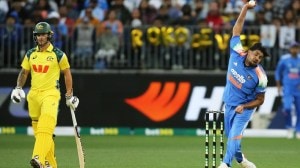New technique to flush out debris from heart and brain
Hyderabad, March 13: Using a new `compliable' balloon, doctors in the city have for the first time been able to flush out life-threatening...

Hyderabad, March 13: Using a new `compliable’ balloon, doctors in the city have for the first time been able to flush out life-threatening debris from the heart and brain, making life more safe.
Demonstrating the technique to this correspondent, Dr P C Rath, interventional cardiologist, was able to retrieve slippery substances from two vital areas — the heart and the brain — thus preventing minor episodes of heart attacks or strokes.
When the heart vessels get clogged with fatty substances or plaques, interventional cardiologists usually clear the block up by sending a catheter with a fine balloon doing a piggyback ride. The catheter is sent from the groin region and travels across a highly turbulent arterial highway right up to the heart. When the balloon reaches the clogged area, doctors inflate it to flatten the fatty substances against the heart vessel, thus creating a passage for oxygen-rich blood to flow through. The procedure is called Balloon Angioplasty.
However, in the process, some fatty substances could slip into minor arteries and trigger minor heart attacks. To prevent this, what Dr Rath and his team did was to send a new `compliable’ balloon that plugged the distal end of the artery where balloon angio was to be performed. Then, in a short spell, another balloon was sent to clear the blocked area. The fatty substances that get dislocated were trapped by the new balloon. The doctors then flushed them out, thus preventing minor attacks.
Dr Rath said the procedure was done for the first time in India. The balloon device used to trap the fatty substance is called Percusurge.
A similar procedure was done on another patient to clear the Carotid artery that supplies blood to the brain. In this case, the fatty debris may have migrated to the brain and triggered strokes.
The two procedures were done at the Apollo Hospitals. Dr Rath’s team comprised cardiologist Manoj Agarwalla and radiologist Venkateswarulu.





- 01
- 02
- 03
- 04
- 05


























